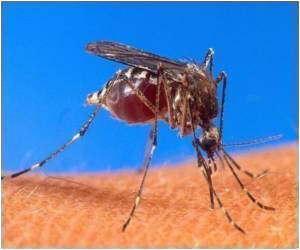
These vesicles had recently been shown to be involved in the immune response to a number of infections, and therefore of potential interest for therapeutic approaches, but their connection to malaria had not been previously investigated.
In the new study, the researchers found that reticulocyte-derived exosomes (rex) are involved in the malaria infection, and they also showed that rex containing parasite proteins could be used to immunize mice, resulting in full protection upon lethal infections in 85% of the animals. While the work up to this point has been limited to a mouse model of the malaria parasite, the authors suggest that the results present new possible directions for the development of novel anti-malaria treatments, specifically against the human malaria parasite P. vivax which has a unique cell tropism for reticulocytes, the original cells where exosomes were discovered.
Source-Eurekalert










